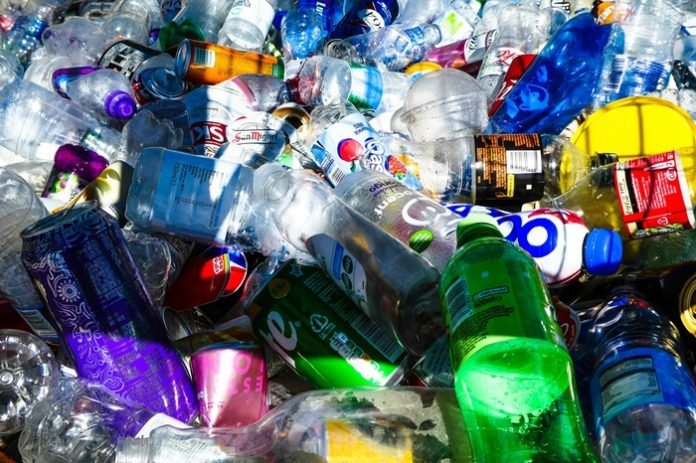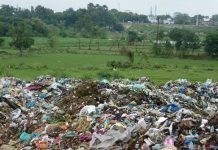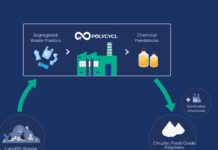PolyCycl, a circular economy technology startup based in Chandigarh, India, has announced the launch of its patented Contiflow Cracker Generation VI chemical recycling pyrolysis technology. According to the company, this fully indigenous innovation hopes to address India’s escalating plastic waste problem by enabling the conversion of hard-to-recycle plastics —such as single-use grocery bags and food-contaminated packaging— into food-grade polymers, renewable chemicals and sustainable fuels.
The company says the launch is the result of over a decade of focused R&D. The Generation VI technology is protected by multiple international patents and facilitates the creation of a plastic-to-plastic circular economy, where commonly used plastics (e.g. polyolefin packaging) no longer need to be down-cycled, incinerated or landfilled at the end of their life. Instead, they can be continuously recycled in a closed-loop, without any loss of quality.
PolyCycl’s Generation VI technology combines Contiflow Cracker — the company’s fully-continuous thermo-chemical pyrolysis process with its proprietary PyOilClean refining technology. This combination transforms low-grade plastics into liquified hydrocarbon oils, which are then purified to remove contaminants such as halogens and hetero-atoms. The resulting chemical feedstocks are versatile raw materials used by the petrochemical and hydrocarbon industries to produce a wide range of premium low-carbon materials, including circular polymers. The technology, in essence, turns such low-grade waste plastics into a resource for manufacturing new materials.

“India generates over 10.2 million tons of plastic waste annually, with more than 40% of this being single-use plastics such as grocery bags and flexible packaging. Traditional recycling methods struggle to handle this waste, which often ends up clogging drains, littering streets, or polluting waterways” says Amit Tandon, founder and CEO of PolyCycl. “PolyCycl’s technology offers a solution for recycling such plastics by thermally breaking them down to their molecular building blocks (oligomers), which can then be re-constituted to create new virgin-quality materials. Our technology, honed over a decade of R&D, delivers high conversion yields of 65-75% and generates chemical feedstocks that have been qualified for the circular economy by multiple petrochemical companies globally.”
The technology’s patented fully-continuous process architecture provides ease-of-scale and development of modular lines each capable of processing between 15 and 100 tons per day (TPD) of plastics. Importantly, the patented design offers significant cost efficiencies, with capital costs up to one-half to one-fourth of competitive technologies in Europe and the US, while delivering project EBITDA exceeding 50%.
India’s extended producer responsibility (EPR) rules mandate 10% recycled content in flexible packaging and 30% in rigid plastic packaging by 2025–26. PolyCycl’s technology supports these targets, enabling production of recycled virgin polymers that meet stringent requirements for contact-sensitive applications, including for food and pharmaceutical packaging.
With three out of four FMCG products in India packaged in flexible formats, single-use plastics pose a key challenge in the nation’s journey toward building a sustainable economy for plastics. “The plastic waste problem is complex and requires multiple solutions,” says Tandon. “From better design for recyclability to stronger EPR mechanisms and innovative recycling technologies, each step plays a role. Chemical recycling is one piece of the puzzle, and we hope our work helps advance the adoption of circular economy practices across industries.”
PolyCycl is a circular economy technology company tackling plastic waste. The company says its chemical recycling technology enables a plastic-to-plastic circular economy, converting hard-to-recycle plastics, such as single-use polythene bags and packaging films, into circular feedstocks for manufacturing of new food-grade quality plastics, sustainable fuels and renewable chemicals.











